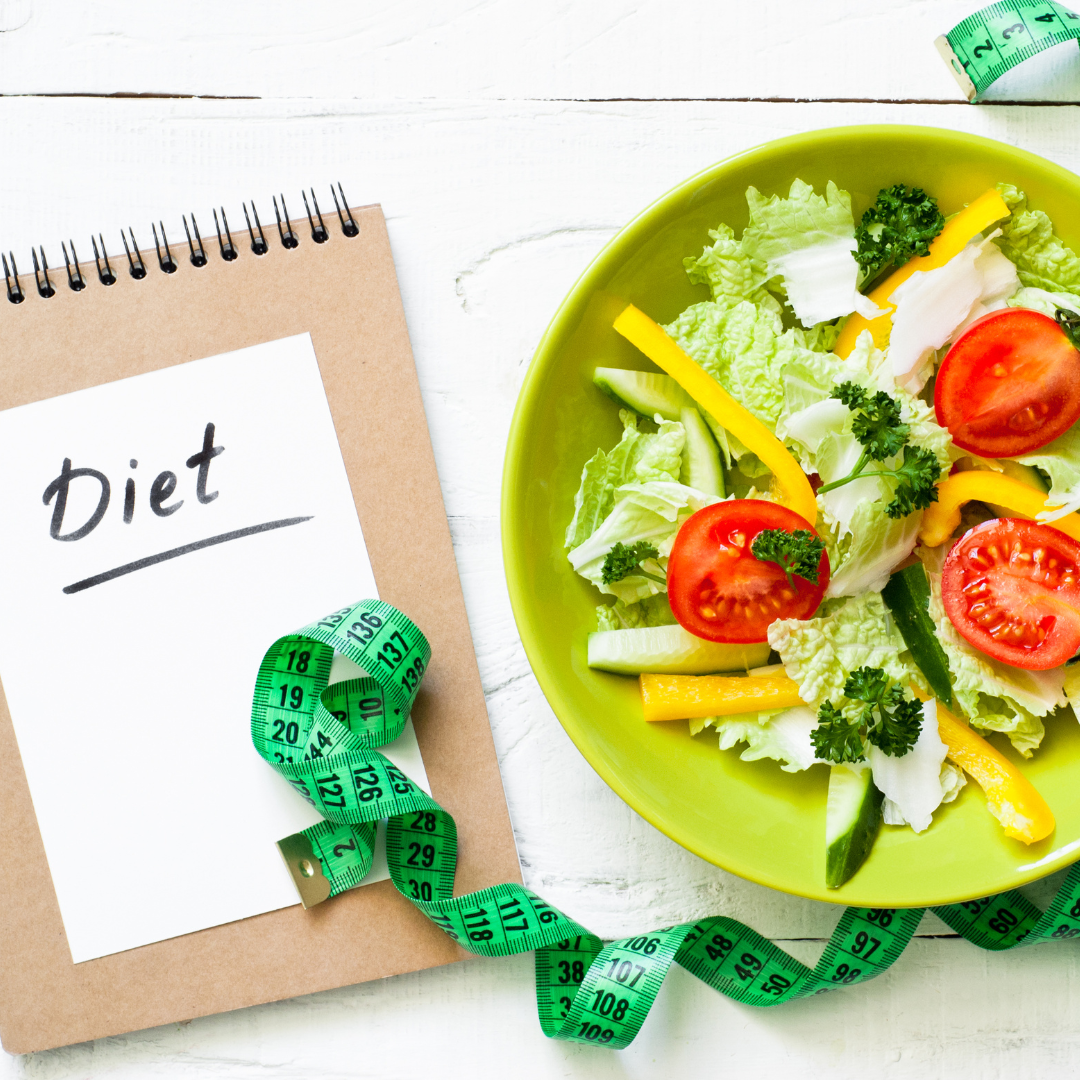As we have discussed in previous articles, diet and nutrition directly impacts your IBD management and healing. You may have instinctively preferred or avoided certain foods just by (quite literally) following your gut instincts. Through your own personal experiment and analysis, some foods make you feel better (or not worse) and others trigger all your symptoms. I am here to confirm your suspicions and help guide you to find the best diet for you with the help of your IBD healthcare team.
What is Inflammatory Bowel Disease?
IBD is the general term we use to refer to both Crohn’s disease and ulcerative colitis. Inflammatory bowel disease (IBD) is characterized by exactly what the name describes, an inflammation in the gastrointestinal tract causing symptoms such as persistent diarrhea or constipation, abdominal bloating and pain, bloody stools, unintended weight loss and fatigue, among a myriad of other physical indicators. Suffering from this disease takes a toll on your whole life!
If you or someone you know has been diagnosed with IBD, you know how difficult it can be to find comfort and symptom relief! You just want to have a good quality of life! As an IBD specialist and the wife of someone who has suffered with Crohn’s disease from a young age, I know how unpredictable this disease can be!
We have many medication treatments available to manage your IBD, but you may also want therapies to help control your disease on a daily basis in addition to taking medication.
I hear you! And I have the perfect option – FOOD! Yes, you read it right, food should be a part of your therapy toolbox to help heal your inflammatory bowel disease.
Today we’re diving into the many diets available to you and if you should try them for IBD.
Can food really help heal your gut?
A gut imbalance can play a critical role in the development and management of multiple chronic diseases such as obesity, diabetes, coronary artery disease, stroke, rheumatoid arthritis, cancer, and especially IBD.
A healthy gut has a balanced and diverse microbiome. This balance is determined by many factors including genetics, upbringing, antibiotic use, current lifestyle, nutrition, sleep exercise… you name it and it affects your microbiome! The healthier it is, the more balanced and diverse your microbiome will be. An imbalance, or dysbiosis, can lead to new or worsening inflammation.
As it becomes more evident that diet is a key environmental risk factor for disease prevention and management, we must use this information in your favor and make the necessary adjustments to help you in your wellness journey. Although we haven’t figured out the exact cause of IBD, the scientific evidence is clear – diet DOES play a role in its development and management.
What dysregulates the gut microbiome?
In industrialized nations, antibiotic overuse, over cleanliness/sanitation, and especially dietary choices have all played a part in dysregulating our gut’s microbiome.
A typical Western-Style diet is low in fiber, is ultra-processed, and is high in fat and animal protein. This type of diet can significantly worsen intestinal inflammation and dysregulate the gut’s microbiome.
As with any management plan, you should always consult with your medical team before trying or adopting it. Take this article as an opportunity to be better prepared with valuable information, to share and explore the right options for you with your doctor. Diet alone is not a cure for most patients with IBD, but can be part of your integrative wellness and disease management plan. So now, let’s start talking about food!
What you need to know about food and IBD
The basic dietary recommendation for IBD patients (and everyone for that matter) is to stay away from all ultra-processed foods, artificial ingredients, preservatives, high sugar/sodium and additives and aim for the good, real stuff.
Beware! This applies to many commercially available, seemingly “healthy” choices, even many processed vegan/vegetarian food choices! Oreos are the classic example! They are technically vegan, since they don’t contain animal products, but are filled with processed sugars, preservatives, and other artificial ingredients like emulsifiers that are known to disrupt the gut microbiome. We have to look beyond the packaging! Don’t fall for their marketing!
Time to get creative!
The best type of diet is the one that feeds your gut’s microbiome. The idea is to consume minimally processed whole plant foods and as many different options as possible. The more plant diversity in your diet, the more diversity in your gut!
A good rule of thumb is this: the closer to nature your food source is, the better it will be for your health. And it doesn’t have to be boring to be healthy. You can get creative and prepare it using different natural ingredients, herbs and spices. Eating healthy foods can be a delicious experience!
Specific Carbohydrate diets
All that being said, some diets do seem to work better for IBD than others. Studies have shown that for patients with mild to moderate IBD symptoms a Mediterranean diet and the Specific Carbohydrate Diet™ (SCD™) help reduce their symptoms and enhance their quality of life.
There are several carbohydrate exclusion diets, including the Specific Carbohydrate Diet™ (SCD™) which is based on the concept of food you should eat (allowed) and those you shouldn’t (excluded). The SCD has been popular with IBD patients and several studies have shown it can reduce symptoms and inflammation.
This diet consists of eating unprocessed meats, poultry and fish, a lot of fresh fruits and veggies (with a couple of restrictions), and only certain legumes (no chickpeas or soybeans) grains, dairy (only some cheeses and yogurt) and sweeteners (like honey and saccharine). It restricts certain grains, fibers and sugars and completely eliminates all refined and processed foods, soy, lactose, sucrose, potatoes, okra and corn, among others.
One of the downsides of this diet is that it may cause vitamin B, D, E and calcium deficiency. For this reason, when following this diet you should be constantly monitored by your healthcare team to make sure you have adequate nutrition.
The SCD diet has been commonly used by IBD patients for a long time, but it can be challenging to follow because of the restrictions. Furthermore, restricting a variety of plant foods can cause further microbiome imbalances. I don’t believe that this diet is sustainable in the long term.
So where does that leave us?
Health experts are now inclined to recommend more plant-forward diets such as the Mediterranean, Whole-Food Plant-Based diet, or a low processed vegan or vegetarian diet.
Plant-Forward diets
Plant-forward, or plant-based diets, is a term we use to describe different levels of diets that are plant predominant and significantly reduce or completely eliminate animal based proteins. They can go from a strict vegan to Mediterranean-style diets, but they all have one thing in common – lots and lots of plants!
One study done with pediatric IBD patients concluded that plant-based diets are extremely beneficial for numerous reasons, including overall health improvement and improvement of the gut’s microbiome. A well planned transition to a plant forward diet is a great way to feed your gut microbiome, fix your dysbiosis, and help improve that inflammation. But this requires time and patience, while continuing your medications and getting guidance from your doctor and a dietitian.
Why? Because people with IBD tend to have an inflamed gut and microbiome imbalances. This can cause you to have many food intolerances and likely have trouble digesting high fiber foods. And since your microbiome is in charge of digesting fiber, an imbalanced gut microbiome is not able to break down the fiber found in plant based foods. Therefore, introducing plant based foods may be challenging and should be done very slowly and as tolerated, with the guidance of your care team.
Mediterranean-style diet
The Mediterranean diet is lumped in with the plant based diets because of its emphasis on whole and unprocessed plant foods. This diet revolves around eating lots of plant-based proteins, fruits, veggies, nuts, whole grains, legumes, herbs, spices, and incorporating moderate amounts of fish, seafood, olive oil, low-fat dairy, and lean proteins (like, poultry, eggs, cheese and yogurt). You can also eat very small amounts of unprocessed red meat every so often (but preferably none at all!). A study that compares the Mediterranean diet with the SCD concludes that patients prefer the Mediterranean diet because it helps improve quality of life, reduce IBD symptoms, improve overall health, and reduce the risk for many other health conditions (including cardiovascular disease and cancer!). Many people also consider it easier to follow than other plant-based diets because of its wide range of food choices.
What about a vegan diet?
A vegan diet is what we can describe as an exclusive plant-based diet. You only eat food that comes from or it is made from plants, and no food that comes from animals (including eggs, honey and dairy products).
When following a vegan diet, it is important that you focus on whole and minimally processed foods to avoid chemical additives and excess salt, refined sugar, and inflammatory oils that can further disrupt your damaged microbiome.
Additionally, a strict vegan diet means you will need to ensure you’re getting enough vitamin b12, either through fortified foods or through supplements. Keep an eye out for a post on getting these key vitamins and minerals while on a vegan diet!
There are limited studies on a strictly vegan diet and their effect on inflammatory bowel disease. However, there are several studies on the semi-vegetarian diet. So keep reading!
The semi-vegetarian diet
A semi-vegetarian diet, also known as lacto-ovo vegetarian or flexitarian, consists of eating less animal proteins (fish once a week and meat once every two weeks) and more fruits and vegetables, eggs, yogurt, legumes, brown rice, miso, and pickled vegetables. You can also drink some milk and green tea. This diet is commonly used in hospitals in Japan for IBD patients and studies have shown that after two years of following the diet, patients were less likely to relapse.
Benefits of plant-based diets
No matter which one of the plant-based diets is right for you, the fact of the matter is, the current data suggests that switching to a plant forward or plant based diet is one the healthiest choices you can make for your IBD management. As a matter of fact, there are many other benefits for following a plant-based diet including:
- Better liver function and reduced weight loss. A study showed that, with the adoption of a Mediterranean diet, abdominal fat and fatty liver disease can be significantly improved and also, as a direct consequence, IBD symptoms and inflammation. Both these conditions are associated with IBD because they can cause malnutrition and make the inflammation worse.
- Balance and diversity of microbiota. The same study mentioned above showed evidence that the Mediterranean diet helps maintain and restore the proper microbiome balance by encouraging the presence of anti-inflammatory bacteria.
- Increased fiber consumption. In the past, it was thought that high fiber consumption may affect or exacerbate IBD symptoms, but not anymore. There are some cases in which it should be limited, but it is not one-size fits all. Don’t fear fiber! Fiber has many benefits for IBD, including regulating your bowel movements and stool, prolonging remission, reducing lesions, and improving your gut microbiome. Eating a high fiber diet may also lower inflammatory markers.
- Reducing inflammation and symptoms. Plant-based diets are anti-inflammatory. They help regulate the symbiosis (perfect natural balance) of the gut’s microbiome. With reduced inflammation and a balanced gut microbiome, symptoms also decrease. The SCD diet and Mediterranean diet have been shown to help reduce fatigue, pain, sleeping problems and social isolation associated with inflammation symptoms.
- Remission. Nearly half of the patients in a study comparing the SCD and Mediterranean diet in people with Crohn’s disease achieved remission on both diets.
- Improvement of overall health. Studies show that the Mediterranean diet was associated with a greatly reduced risk of developing later-onset Crohn’s Disease. It is also associated with reduced risk of colon cancer and cardiovascular disease.
Other diets for IBD
There are other specialized diets used in IBD treatment. You may need them at some point of your journey, but know that these should be very carefully monitored by your IBD health team. Some of these diets are very restrictive and can, if not followed properly, cause weight loss or even malnutrition.
Enteral nutrition
Enteral nutrition is a nutrient rich liquid formula that can be ingested as a drink or through a feeding tube. This formula is packed with all the necessary nutrients your body needs to function properly. It can also help heal and protect your small intestine’s nutrient absorption capability.
It may be recommended by your doctor as your main source of food or as a supplement when dealing with possible IBD complications such as surgery, severe inflammation, obstruction and weight loss. Your doctor and/or registered dietitian will tell you how much to consume, depending on your individual caloric need. Some of the more common ones are Ensure, Boost, Orgain, and Glucerna.
Low-fiber diet
A low-fiber diet consists of reducing the consumption of fiber by avoiding leafy vegetables, nuts, seeds, popcorn, whole grains, and fruit with skin. A low fiber diet might help to reduce abdominal cramps and decrease gastrointestinal movement. This diet is often recommended when you’ve been off a regular diet for a while, such as when recovering from surgery and/or bowel strictures or obstruction.
Low-FODMAP diet
This diet consists of reducing the consumption of certain types of sugars (Fermentable, Oligo-, Di-, Monosaccharides and Polyols) that may be difficult for you to digest. These include foods like garlic, leeks, artichokes, wheat, lentils, chickpeas, green peas and dairy, among others. It is only meant to be used for short periods of time to reduce symptoms. It is recommended you speak with a registered dietitian before starting this diet. He or she can guide you through the elimination and reintroduction process.
Gluten-free diet
A gluten-free diet consists of eliminating all gluten food products. Gluten is a naturally occurring protein that is present in many types of food such as wheat, rye, barley, spelt and other grains. Although it may reduce IBD symptoms, it has not been proven to reduce inflammation. This diet may increase your risk of malnutrition and weight gain. For those reasons, this diet should only be considered if celiac disease is confirmed or if it is documented that you have a gluten intolerance by your dietitian or gastroenterologist.
So, what’s the best diet?
We’ve gone through a lot of information about diets and their impact on IBD. So, what’s the best diet for you? The best diet for IBD is the one that best helps you reduce your inflammation levels, improves your symptoms, and fills your dietary needs while also being enjoyable and sustainable!
The best diet for you is one that feeds your individual and unique gut microbiome, keeping it in balance and diversified. Your diet should be based on your individual nutritional needs and symptom management. Remember that you need to be fully nourished to be able to heal properly. Like with all treatments, you should consult with your IBD health care team to find the right diet for you!
To recap: Plant-based diets come in all shapes and sizes (vegan, vegetarian, Mediterranean) and are highly recommended for the vast majority of IBD patients. Studies have shown the efficacy of plant-based diets for IBD patients with benefits such as symptom management, improvement of microbiome balance and diversity, inflammation reduction, improvement of liver function, weight management, and overall health. It may even help you achieve the main goal of long-lasting remission alongside medical therapy!
When will I see results?
I’ll leave you with this – it does take some time (6 – 12 weeks minimum) to start to feel the benefits of a plant-based diet. Go at your own pace, with a slow introduction of plant-based foods, and monitor how you feel. Don’t push yourself too hard or too fast as this may result in a set back and worsening of your symptoms. And always discuss with your healthcare team before starting a new diet!
Please be patient!
If you need help in this process, contact our integrative team of specialists at Planted Forward and work alongside our dietitians to help you get the lasting healing you deserve!











